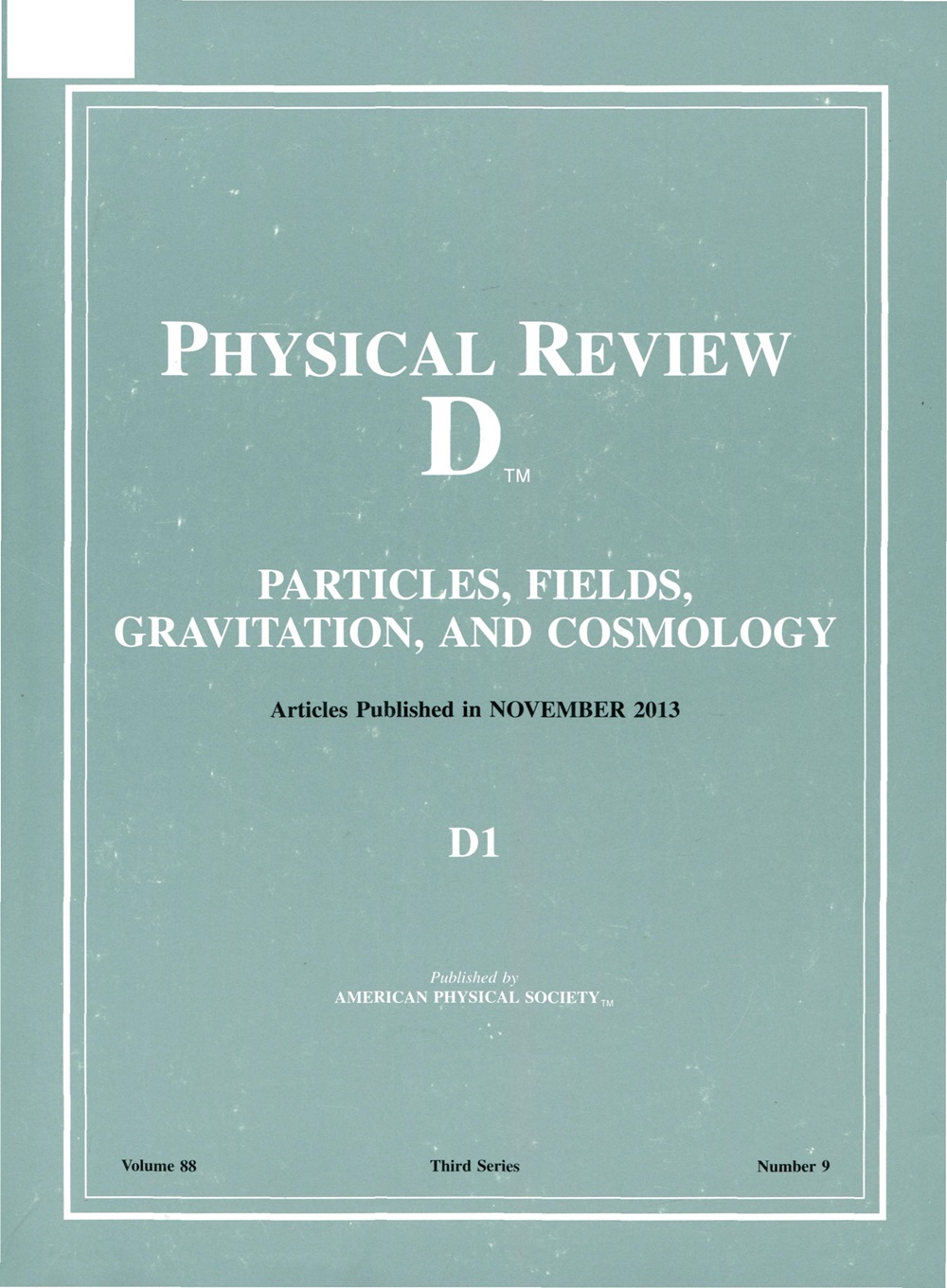Superexponential primordial black hole production via delayed vacuum decay
IF 5
2区 物理与天体物理
Q1 Physics and Astronomy
引用次数: 0
Abstract
If a cosmological first-order phase transition occurs sufficiently slowly, delayed vacuum decay may lead to the formation of primordial black holes. Here we consider a simple model as a case study of how the abundance of the produced black holes depends on the model’s input parameters. We demonstrate, using both numerical and analytical arguments and methods, that the black hole abundance is controlled by a double, “super”-exponential dependence on the three-dimensional Euclidean action over temperature at its minimal value. We show that a modified expansion rate during the phase transition, such as one driven by an additional energy density component, leads to a weaker dependence on the underlying model parameters, but maintains the same superexponential structure. We argue that our findings generalize to any framework of black hole production via delayed vacuum decay.通过延迟真空衰变产生的超指数原始黑洞
如果宇宙的一阶相变发生得足够慢,延迟的真空衰变可能导致原始黑洞的形成。在这里,我们考虑一个简单的模型作为案例研究,研究产生的黑洞的丰度如何取决于模型的输入参数。我们用数值和解析的论证和方法证明,黑洞丰度是由双“超”指数依赖于三维欧几里得作用对温度的最小值的控制。我们发现,在相变过程中改变膨胀率,例如由额外的能量密度分量驱动的膨胀率,导致对底层模型参数的依赖性较弱,但保持相同的超指数结构。我们认为,我们的发现可以推广到通过延迟真空衰变产生黑洞的任何框架。2025年由美国物理学会出版
本文章由计算机程序翻译,如有差异,请以英文原文为准。
求助全文
约1分钟内获得全文
求助全文
来源期刊

Physical Review D
物理-天文与天体物理
CiteScore
9.20
自引率
36.00%
发文量
0
审稿时长
2 months
期刊介绍:
Physical Review D (PRD) is a leading journal in elementary particle physics, field theory, gravitation, and cosmology and is one of the top-cited journals in high-energy physics.
PRD covers experimental and theoretical results in all aspects of particle physics, field theory, gravitation and cosmology, including:
Particle physics experiments,
Electroweak interactions,
Strong interactions,
Lattice field theories, lattice QCD,
Beyond the standard model physics,
Phenomenological aspects of field theory, general methods,
Gravity, cosmology, cosmic rays,
Astrophysics and astroparticle physics,
General relativity,
Formal aspects of field theory, field theory in curved space,
String theory, quantum gravity, gauge/gravity duality.
 求助内容:
求助内容: 应助结果提醒方式:
应助结果提醒方式:


